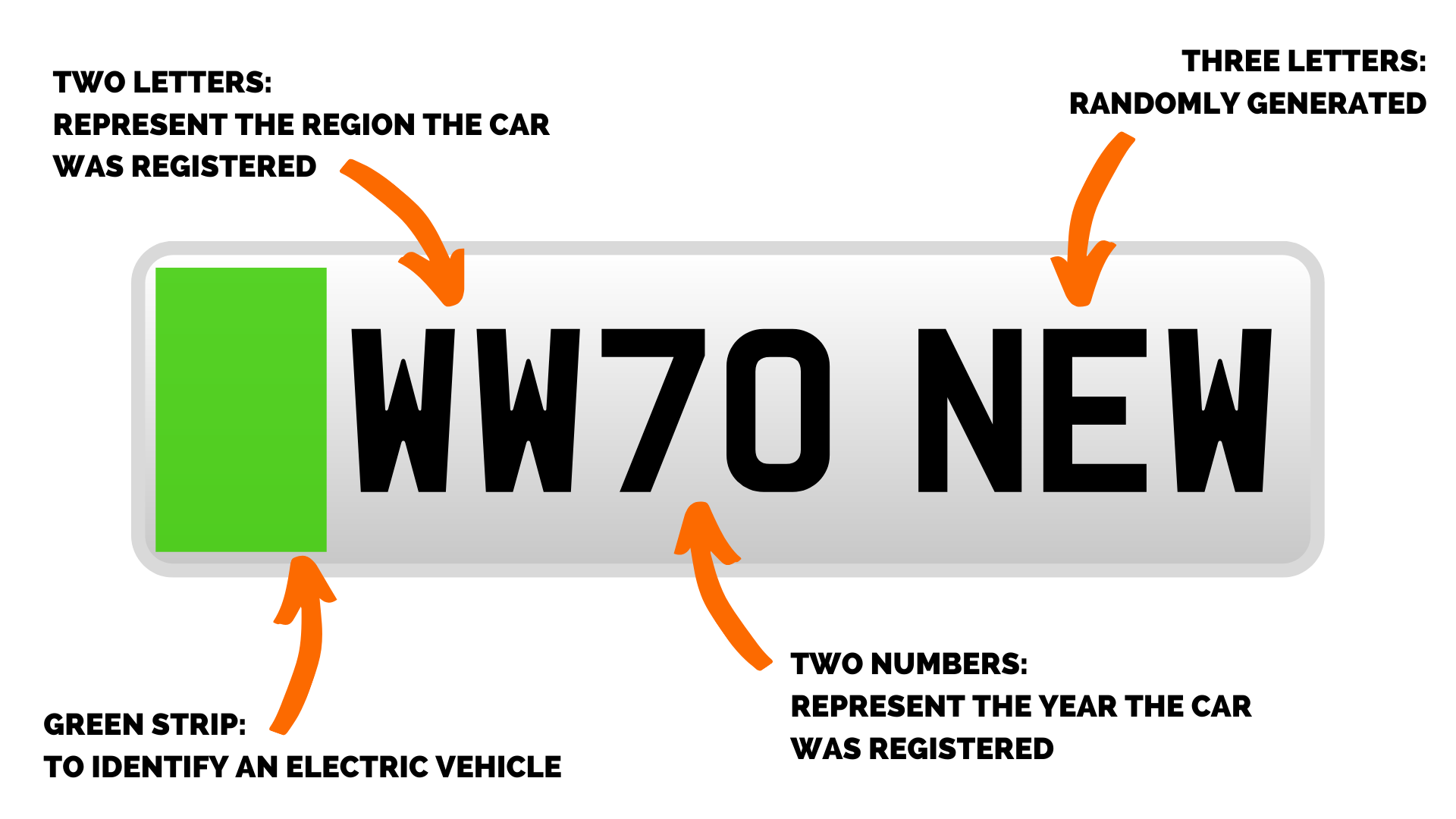
In the UK, vehicle number plates change twice a year – on 1st March and 1st September – and this year is a particularly exciting one with the launch of the new 70-plate on 1st September 2020.
Key facts at a glance:
- UK number plates change twice a year
- Electric vehicles feature a green strip
- The DVLA can reserve personalised plates – even if your car isn’t a 70-plate yet
- Dealers will be making older used cars cheaper to make room for 70-plate stock
Vehicles first registered between 1st September 2020 to the end of February 2021 will feature the brand new ‘70’ registration plate. Here’s everything you need to know about the new plate and what it could mean for your current car warranty.
The current registration plate format has been in place since September 2001 with the number plate being divided into three primary alphanumeric sections, from left to right, as shown below.

The new 70-plate is also the first to debut a green strip on the registrations of electric vehicles following an announcement in June by the Transport Secretary, Grant Shapps, to distinguish and promote zero-emission vehicles for potential new incentives.
The green strip will make it far easier for electric vehicles to be identified, allowing local authorities to design new measures to encourage people to buy them. This is another step taken towards the UK’s planned ban on the sale of petrol and diesel vehicles by 2035 and being carbon neutral by 2050.
Do I have to buy a new car to get the 70-plate reg?
You don’t have to buy a new car to get the new registration. Anyone can buy a 70-plate registration if they want to as it provides a whole host of new personalisation options.
If you buy the new registration though, you won’t be able to fit it to a vehicle registered before 1st September 2020, as the rules state that a number plate cannot make a vehicle look newer than its age. That said, there’s nothing to stop people from snapping up the personalised registration they’ve had their eye on and keeping it on retention until they buy a vehicle in the future they’d like to put it on.
Personalised registrations can be retained for as long as necessary, and the DVLA issues 10 years retention with no future fees to renew. However, it’s important to check the expiry date of the registration certificate if it is not assigned to a vehicle, as the rights to the registration will be lost if not renewed.
Will the new registration affect car prices?
The anticipation around the new 70-plate dealership stock means that a lot of car dealers are reducing the prices on their existing stock
to make room, so it could be the perfect time to shop around for a new or used car.
For many dealers, September is likely to be the busiest month of the year with hopes of boosting their recovery from the effects of Covid-19 on the economy.
Does the new registration affect my car warranty?
Although you may not think the new registration has any baring on your current vehicle – its introduction may be a good indicator that your manufacturer’s warranty is due to expire in the next few months.
All new cars come with a manufacturer’s warranty that usually lasts between three and seven years, so if you have bought a new vehicle during that time period, it’s a good idea to check your warranty to ensure you’re still protected.
Discover more.
Further Warrantywise articles you might find useful

Everything you need to know about the new 74-plate registration.
In the UK, car enthusiasts and prospective buyers eagerly await the release of new car registrations on the 1st of … Continued

Drivers should have an eye test every decade, experts urge.
In the UK, all drivers must meet legal eyesight standards to stay safe on the road. If you rely on … Continued

Is it illegal to park on the pavement during a breakdown?
Recently, there have been petitions to ban pavement parking due to the danger that it can cause to pedestrians. UK … Continued